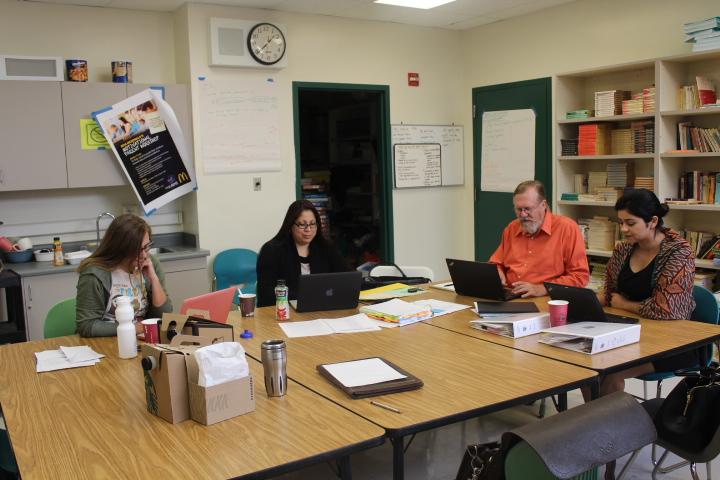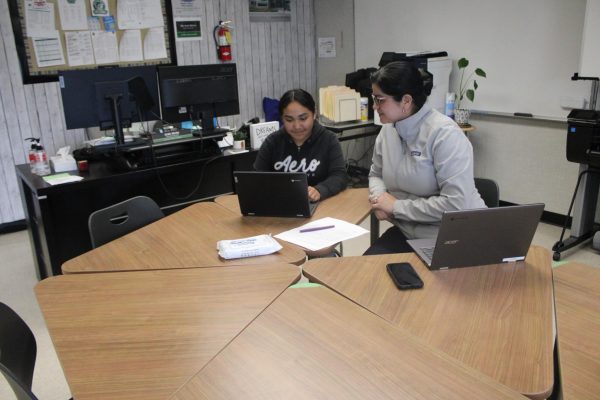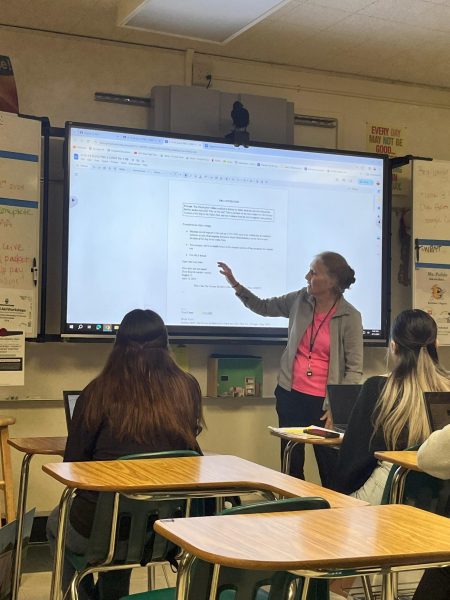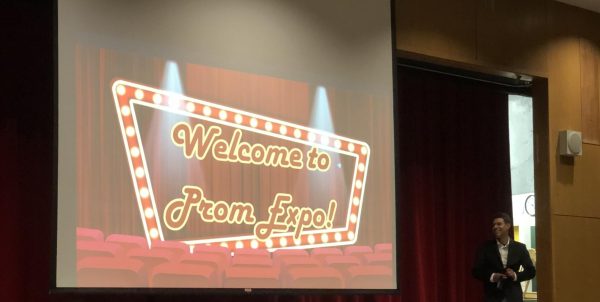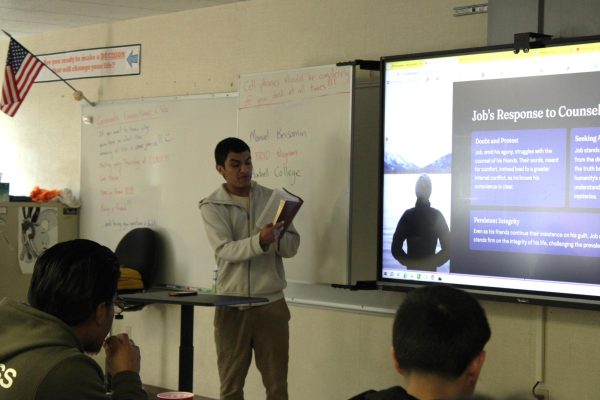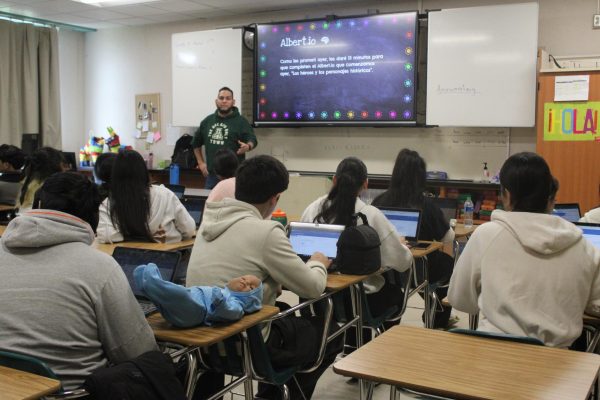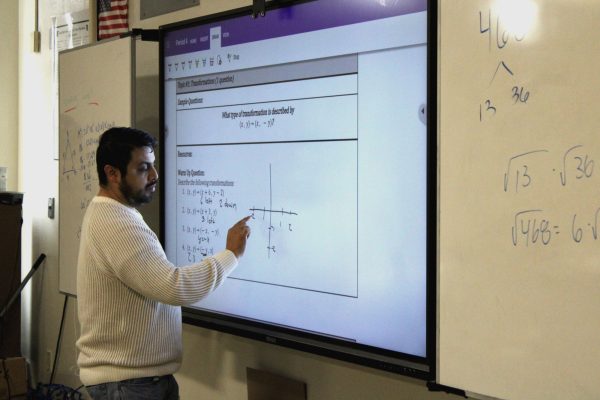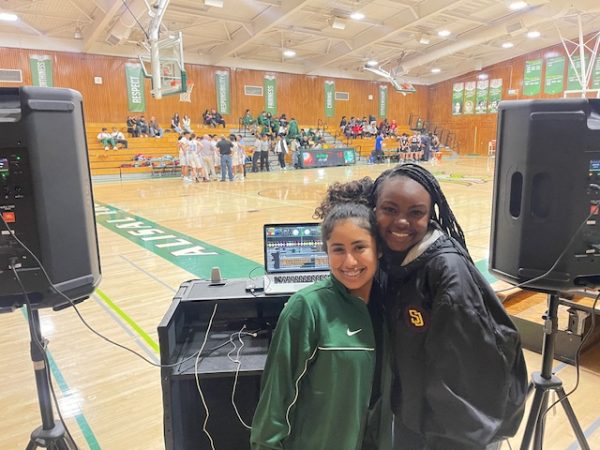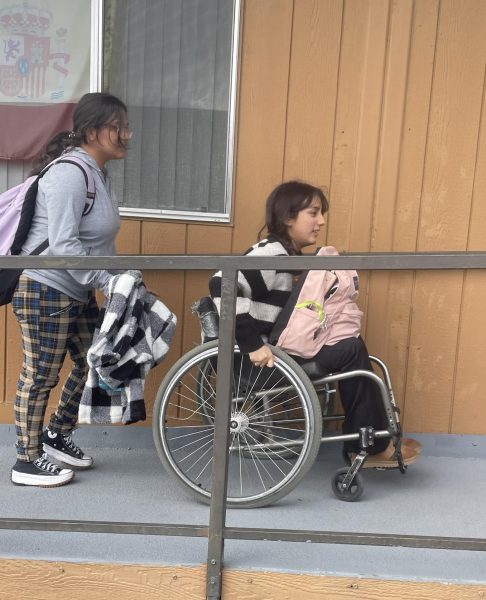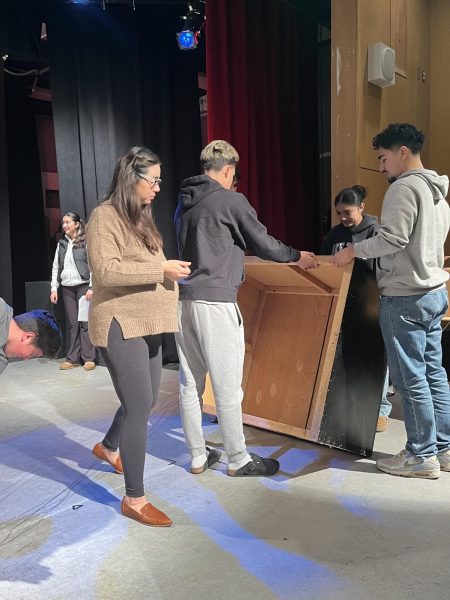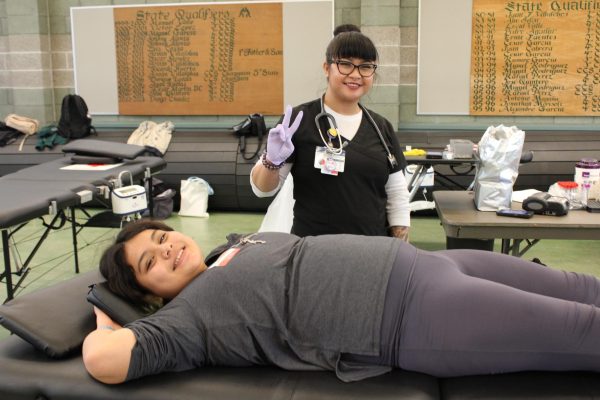Alisal Seeks to Renew Accreditation
Amber Dodd, Patricia Cardona, Paul Quiggle, and Ana Gutierrez work diligently on preparing Alisal’s WASC report.
Most people think that colleges just accept the work you do in high school with no questions asked. What most people don’t know is that the high school you attend must be accredited in order for universities and colleges to actually accept your transcript and give you credit for the classes you took.
The Western Association of Schools and Colleges, also known as WASC, oversees accreditation of schools in California. WASC makes sure that an educational
community, the general public, and other organizations and agencies have clearly defined objectives appropriate to education. Schools earn 1, 3, or 6 years accreditation, which means that they will not have to go through the accreditation process until their years are up. The last time Alisal got accredited, it earned six years, the maximum. Those years are up and it is now time for Alisal to go through the process and get accredited again.
Although all teachers participate in the accreditation, there are four teachers who are in charge of the data and information that must be gathered – Paul Quiggle, Patricia Cardona, Amber Dodd, and Ana Gutierrez. Cardona said, “It’s usually a year of gathering information and looking at our school in all the specific areas that are given to us and looking at what is working, what needs a little bit of improvement, and then creating a plan to address those areas improvement.” The four teachers are pulled out of class a few times during the school year so they can bring all their data and information together.
Quiggle, Cardona, Dodd, and Gutierrez are not the only ones who participate in getting accredited; teachers have a role as well. Quiggle said, “Teachers are divided into specific areas that we need to look at and they are things like the curriculum, and how instruction is delivered, what the school climate is like, categories like that.” Teachers are also separated into what are called home groups, which are groups composed by subject, like English, Science, or Math. These groups evaluate how everything is working and in the end, Quiggle, Cardona, Dodd, and Gutierrez put all the data together.
Of course students play some part in getting accredited. The way students participate in the process is that there will be a student group. Dodd said, “There will be a student survey that will be given to the student group made.”
In order to collect all this data, all the focus groups must meet to plan and put information together. The teachers would normally meet during collaboration in order to get the work done, but the union has said that now teachers must be pulled out of class to meet in the focus groups. The teacher’s union pretty much is saying that collaboration is for departments to meet together and focus on whatever they need to do for the department, separate time must be made in order for teachers to meet in their focus groups. English teacher Jane Albano said, “I don’t like being taken out of class. I am with the union on whatever they say, but I don’t like being taken out of class. I’ve already been taken out twice.”
WASC requires that schools meet certain criteria, and if they don’t then a school either doesn’t get accredited or gets fewer years accreditation. The bottom line is the whole accreditation process is a self-assessment of Alisal. Quiggle said, “It’s actually a self-study. Our school comes up with what we believe needs improvement and then a [WASC] committee will come in February and basically validate our report and see if it really is accurate and then based on how well our plan matches what our needs are, determines what our accreditation status is.”
The overall report that will be presented to the WASC committee must be completed in January so the committee has time to review the report and know what to look for when they make the visit in February. During the visit, the focus groups will get together in their groups and meet with the committee to talk about how the report was made, what is in the report, and how did they view the process. They will also ask clarifying questions to to know exactly what was meant by things put on the report. “The committee pretty much makes sure the report accurately reflects what is going on with the school,” said Quiggle.
Alisal will know how many years we of accreditation we get between the end of May and the beginning of June. The visiting committee does not decide how many years Alisal gets when they come and visit. They send a report made by them, as well as the report made by Quiggle, Cardona, Dodd, and Gutierrez, to a commission who then evaluates the report and decides how many years of accreditation they are going to give Alisal.
Your donation will support the student journalists of Alisal High School. Your contribution will allow us to purchase equipment and cover our annual website hosting costs.



